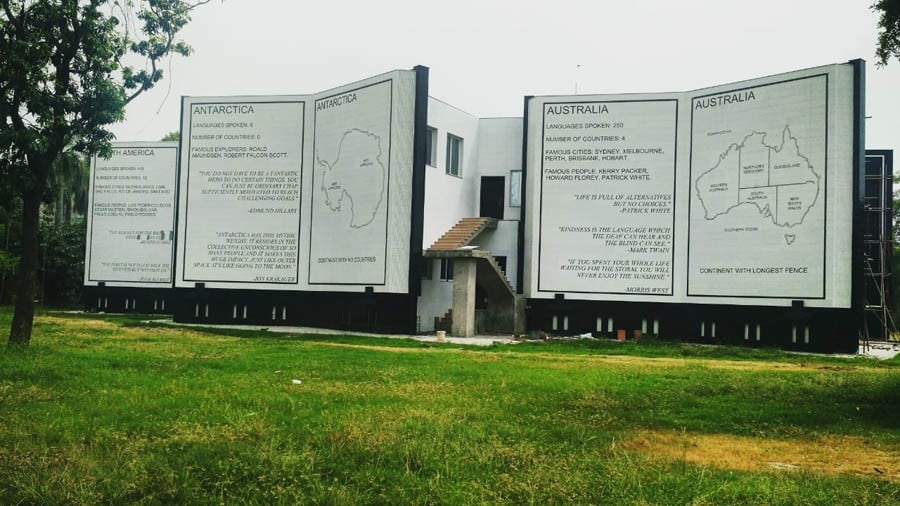
At a time when lending books is a facility offered by only two public libraries in the city, the Punjab Lahore E-library is looking to change the game

Ask any urban Pakistani what is so great about Lahore and they will readily say, ‘Food’ (with a Capital F) -- maghaz, nihari, halwa puri, pathooray, haleem, you name it; even the ubiquitous fast food. But can we have an alternative narrative for Lahore besides the mirth and girth? Is there a healthier but equally addictive alternative to, let’s say, binge eating, smoking and drinking (of all kinds)?
In my humble mind, yes, there is one, called reading. It never killed anyone. Besides, if anything, it would open the world of knowledge to you. However, Lahoris seem to be more gastronomically inclined. A brief, informal survey conducted by TNS reveals that there are very few of us who are interested in going to libraries (for books, that is). A couple of people I spoke with even laughed off the suggestion of joining one.
Let’s first set a benchmark here, and see what the city’s public libraries are supposed to do, or what good are such places doing in other cities of the world. Usman Shahid, admittedly a "forever-Lahori-at-heart" friend who currently resides in Cambridge, UK, told me, "Besides having a central library Cambridgeshire County has several local libraries, in addition to three mobile libraries. You can order books from the central library through both."
What has impressed Shahid the most is that "all babies get a library card at the time of birth; membership is free for all." Also, there are no charges for books damaged by readers under five. As for adults, there’s a huge collection available that you can borrow from, and a world-class reference section and online collection. Lahore would only do well with following this model.
Unfortunately, there are only two general lending libraries in Lahore -- British Council Library, and Punjab Public Library. No, the Higher Education Commission does not approve of private or public university libraries to lend books to the general public.
But all is not lost -- yet. Punjab Information Technology Board’s (PITB) e-libraries is a stellar initiative. According to Sumreen Asghar, Assistant Manager at the Lahore E-library, which is part of the 20 e-libraries functional in different districts of Punjab, "Here you have access to computers, laptops, tablets, free wi-fi, conference room, and reading rooms where you can study from a selection of around 3,000 physical books.
"You just need to fill a small form online and instantly you can access thousands of books. All you need to do is show your identity card in order to get membership free of cost," she adds.
For the uninitiated, the Lahore E-library is located opposite National Hockey Stadium, Nishtar Park, Gaddafi Stadium.
"We want maximum number of people to visit and use the libraries on ‘one-step-ahead’ basis," adds Aqsa Qazi, Program Manager at the library. "You can access multiple databases of books and journals.
From the comprehensive E-brary (a database for e-books allows the user to download and print books chapter by chapter) to the technical and science-heavy Springer the choices for researchers and students are immense. There is even access to Pakistan Law Site’s definitive database of case law of superior judiciary and statutes.
Qazi reveals that "with ProQuest you can access world’s most comprehensive collection of 1,238,630 dissertations and theses from around the world.
"If you click the HEC digital library link, you would have access to 11 different journals’ databases on various disciplines of knowledge."
Qazi says that the Children Digital Library Section will be available after a couple of weeks on the same portal. Hard-to-get books and journals can also be ordered.
The digital content section of the Punjab Digital Library is currently a work in progress that entails digitisation of physical resources and collections of some of Punjab’s libraries. E-Libraries also offers training sessions, seminars book fairs, and courses in their premises in different districts of Punjab. So far there are roughly 27,000-plus members of these libraries.
The interface of the library is user-friendly but to access different databases you need to be physically present in the library. E-Libraries’ website provides hundreds of links on a single platform, so one can search content on any subject under the sun. E-content (thesis, books, articles etc in pdf format) can also be ordered via email.